What They Told Us: Reviewing Last Week’s Key Polls - Week Ending August 15, 2020
In surveys last week, this is what America told Rasmussen Reports...
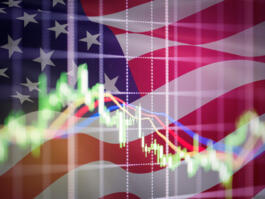
In surveys last week, this is what America told Rasmussen Reports...
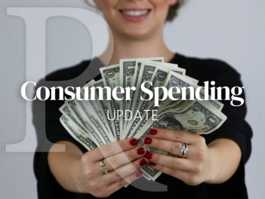
Economic confidence slowed this month, dropping four points from July to 110.8 in this month’s Rasmussen Reports Economic Index.
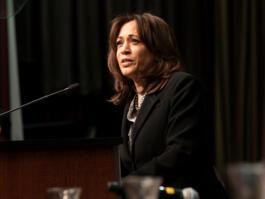
Earlier this week, Joe Biden named Kamala Harris as his running mate. Democrats overwhelmingly like the California senator and have their eye on her to hold the top spot in 2024 if the Democratic ticket loses this time around, but a third of black voters say the announcement makes them less likely to throw their support behind the Democratic ticket despite their more favorable view of her.

Accused of being a serial harasser in 2019, Joe Biden did what comes naturally. He apologized for perceived past misbehavior, and, to appease his accusers, pledged to choose a woman for a Biden ticket.

Just as Joe Biden announced Kamala Harris as his vice presidential nominee, and a week before the Democrats' virtual national convention is scheduled to begin at various sites, the basement strategy he's been pursuing, hailed as the political equivalent of "The Emperor's New Clothes," was starting to look tattered and torn.
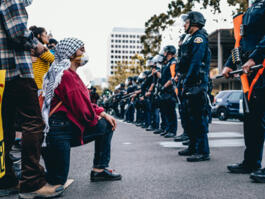
Voters are ready for the police to put an end to the continuing violent protests nationwide. Most also say the protests will be important to their vote in the upcoming elections.

The presumptive Democratic nominee plays it safe.
— Kamala Harris, long seen as a frontrunner to be Joe Biden’s running mate, represents a vetted, qualified, and safe VP choice.
— Harris is the latest in a long line of Democratic senators who have become running mates. If she becomes vice president, Democrats should not have any real obstacles to keeping her seat.
— Biden’s new running mate has only been in the Senate for less than four years, but she was California’s statewide elected attorney general before that — though she almost lost in 2010.
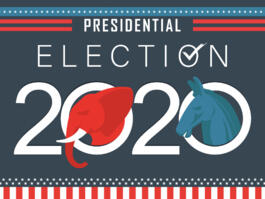
Hot on the heels of announcing Kamala Harris as his running mate, likely Democratic nominee Joe Biden has taken a six-point lead over President Trump in the latest Rasmussen Reports’ weekly White House Watch survey.
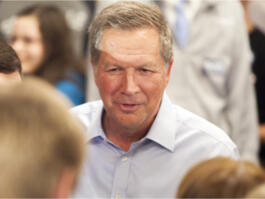
Former Ohio governor and unsuccessful GOP presidential candidate John Kasich has defected to Democrat Joe Biden. But most voters say it will have no impact on the upcoming election.

There's bad blood between President Donald Trump and Comcast. It's no secret.

Black Lives Matter protests led many people to want to do something useful to reduce racial injustice. Racial justice groups are being flooded with money.
Big companies made multimillion-dollar donations.
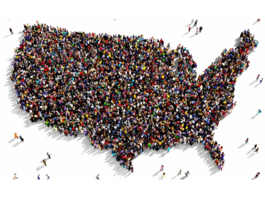
The Rasmussen Reports Immigration Index for the week of August 2-6, 2020 inched up to 103.2 from 102.3 the week before.
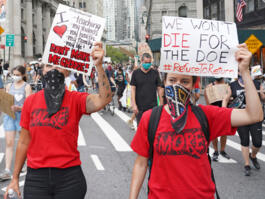
Most parents want their kids to go back to school in the fall, but teachers’ unions nationwide are fighting efforts to reopen. Americans, especially those with children, are now more critical of those unions and suspect that they have too much influence over local school operations.

One way President Donald Trump built the best economy in 30 years was by attracting nearly $1 trillion of foreign capital to these shores. This money got invested in new business startups and expanded existing Made-in-America businesses. This "repatriation tax holiday" worked like a charm. Millions of jobs were created -- and this was a major contributing factor to the American economic sonic boom.

Since the death of George Floyd beneath the knee of a cop in Minneapolis on Memorial Day, the nation has been instructed by its cultural elites that this is the daily reality that a racist America has too long ignored.

Twenty-eight percent (28%) of Likely U.S. Voters think the country is heading in the right direction, according to a new Rasmussen Reports national telephone and online survey for the week ending August 6, 2020.

Likely Democrat nominee Joe Biden is expected to announce his vice presidential running mate any day now, and most voters think it’s likely that person will be president within the next four years if Biden is elected in November.

The stock response to President Donald Trump's suggestion that the general election might be delayed because voting during a pandemic would involve a record number of mail-in ballots, a format he argues is unreliable and susceptible to fraud, is that he doesn't have that power.

In surveys last week, this is what America told Rasmussen Reports...

If the presidential nominating process is the weakest part of our political system -- and, perhaps not coincidentally, one not referenced by the founders -- the vice presidential selection process comes solidly in second place. Some might even argue it's a contender for the top spot.